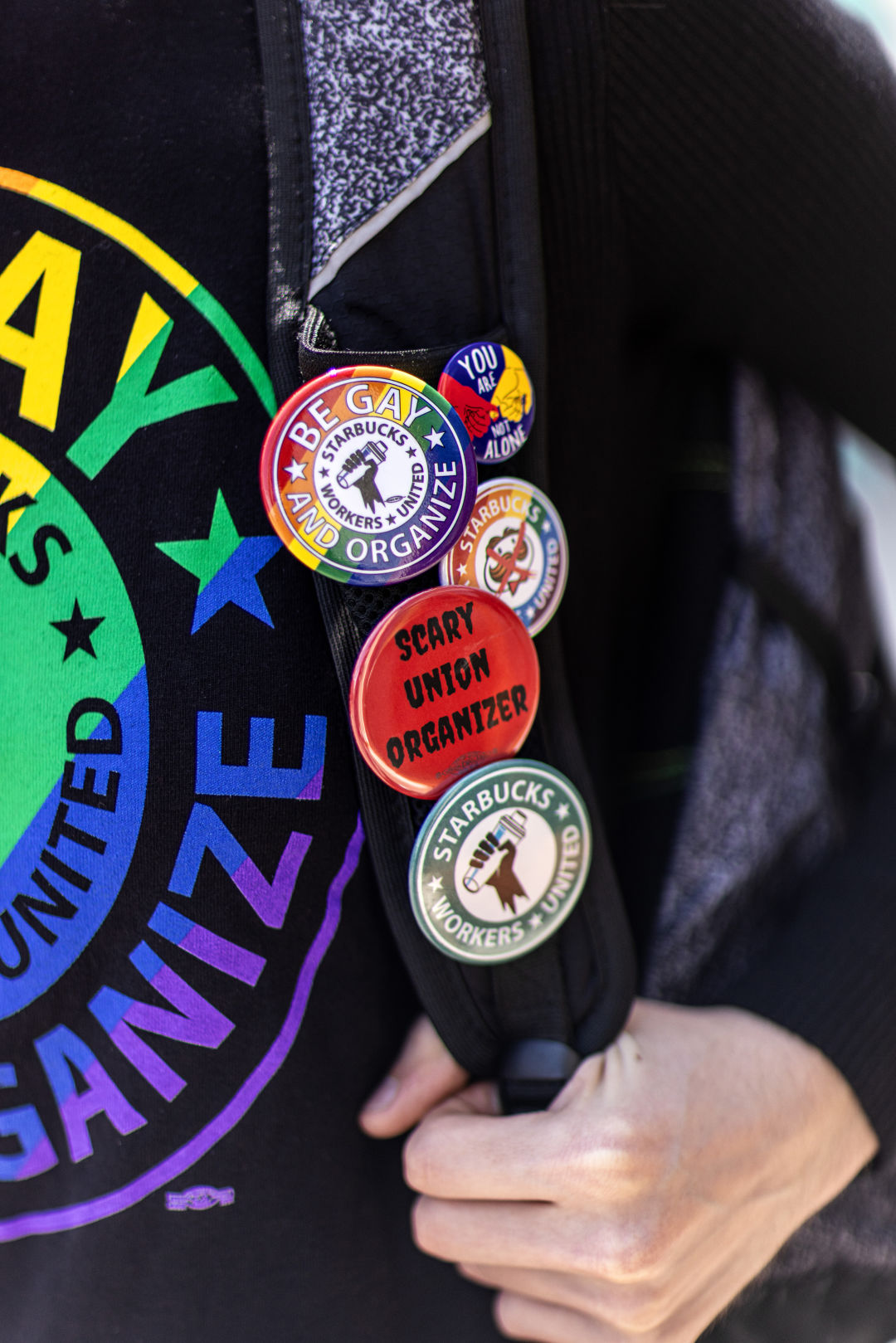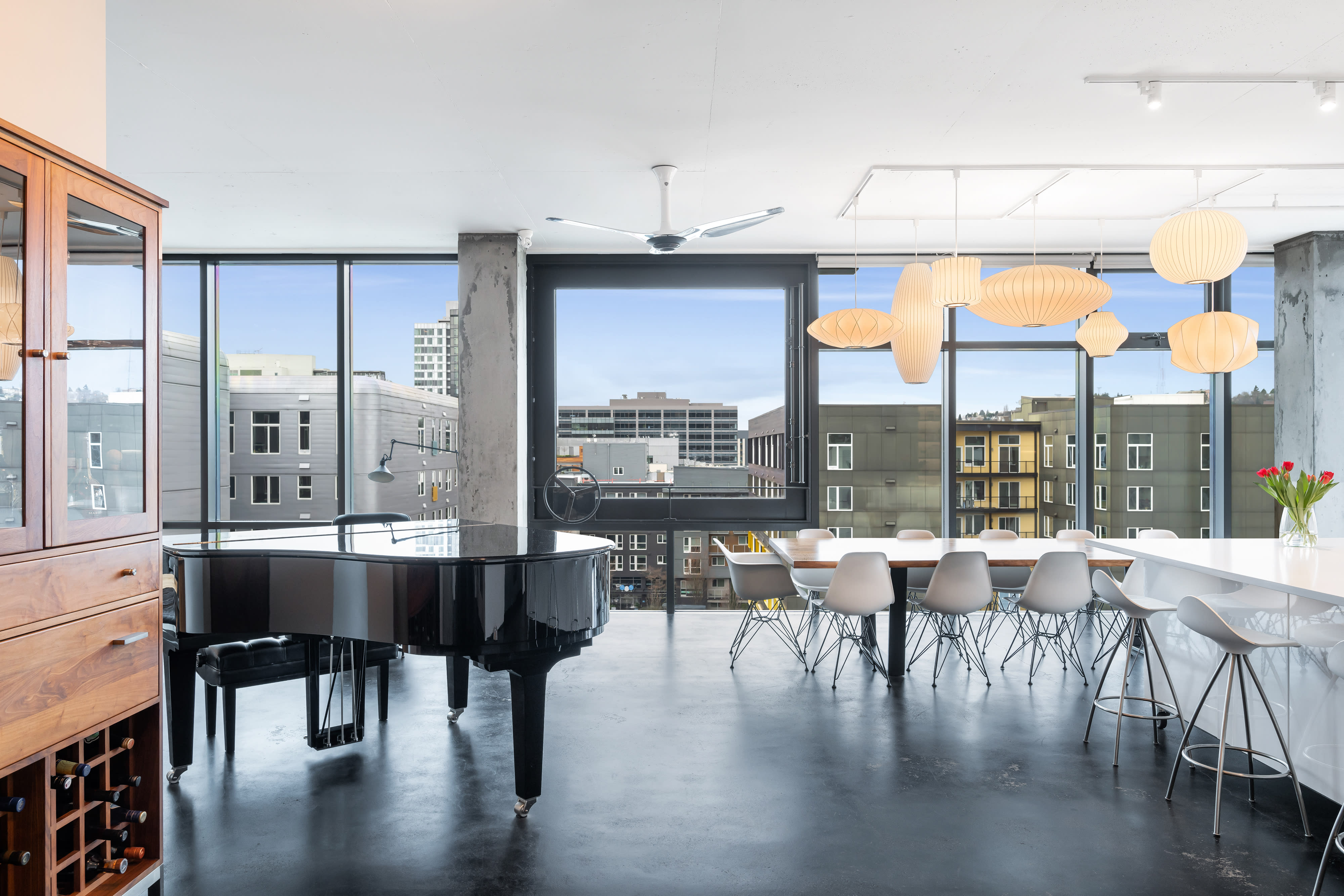How a Capitol Hill Starbucks Barista Became a Union Organizer

Liz Duran wants to see Starbucks do more for its workers, including on LGBTQ+ issues.
Image: Mike Kane
Liz Duran barely drank coffee when she took a job as an operations lead at Capitol Hill’s Starbucks Reserve Roastery. But she quickly learned the creative side of coffee culture—and then that her new workplace was unionizing. It was the second Starbucks in Seattle to do so, one of now more than 300 nationwide. Well-accustomed to unions thanks to years in the grocery industry, Duran took on a leadership role in Starbucks Workers United, even as Starbucks corporate pushed back and eventually ended up in federal court over accusations of union busting. In June, Roastery staff joined other Starbucks workers on strike over the company's treatment of LGBTQ+ workers. Now more than a year into the unionization process, Duran says she’s found community through organizing, and a new love of coffee.
I wasn’t a coffee person before. I kind of fell in love with it as like an art and as a craft.
The joy I get from coffee is from the sampling experience, the artistry of crafting it, and being able to provide something that others will enjoy. Coffee can be your canvas.
I was one of the first group of people to come into that space that didn't come from Starbucks, that didn’t have like a certified coffee master background. It was very intimidating.
But the result is I have developed a lot of really great connections with coworkers; they’re like my work family.
The roastery is the flagship store of the company. It’s the crown jewel.
It's like four different shops in a trench coat: There’s a cafe bar, there’s a retail store, there’s a full-service bar top, and a bakery.
We’re bringing back the craft of coffee and the happiness and artistry of it, but still also being able to relate it to customers’ love of the brand.
What really made me a longtime union supporter was that when I first started working at Fred Meyer, it was really early on in my journey of coming out as queer individual.
There were protections I was given and help I was given by the union in dealing with issues in the workplace.
That’s really what made me see what solidarity means, beyond just “Oh, this is a place to get a paycheck.”

Seattle's Starbucks union activity has been part of a national movement.
Image: Mike Kane
I didn't know the shop was organizing until we publicly filed the petition for union election. I was like, how do I get involved? How do I help? I’ve got experience, I’ve got answers.
A red flag for me is that there’s not like any sort of safety committee, there’s not really any sort of way for people to address concerns or grievances about workplace safety.
The amount of workers that get hurt in this workplace is very high compared to my experience with strict safety guidelines in grocery stores.
We’re one of the biggest tourist destinations in the city, and yet we don’t offer digital tipping. You can tip with cash, but that’s it.
The company’s been talking for years about rolling out digital tips. And then in response to our unionization effort, they started rolling it out at Starbucks stores, but only nonunion stores.
Also, the company can just give us a benefit, and then take it away when they feel like. Trans health care benefits with Starbucks changed pretty significantly from how they used to be.
It just feels very often like rainbow capitalism. They actually don’t do anything supporting queer workers, but they say they do. They’ll put up a flag and call it a day.
Organizing’s kind of taken over my life.
Strikes are always an effective reminder to our managers…we do have the ability to just shut the store down at any opportunity.
I understand solidarity with another fighting worker, and I can go and support them on their picket line even if I don't understand their exact experience.
A lot of us want to be here. We want it to be the things that the company says that they believe in.




